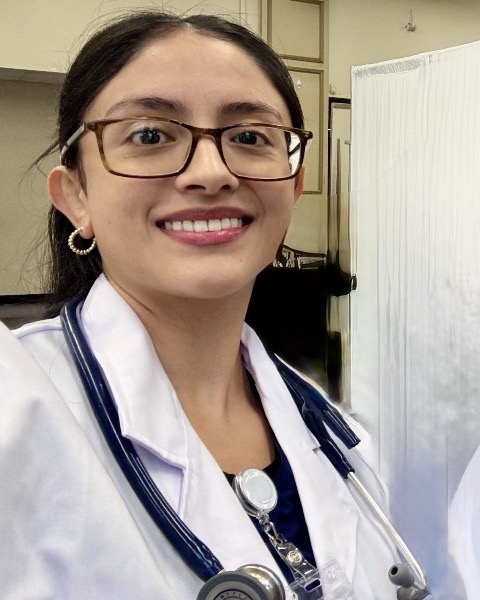Tuesday Poster Session
Category: Practice Management
P6161 - Pre-Procedure Colonoscopy and Endoscopy Videos Decrease No-Show Rates: A Retrospective Study
Tuesday, October 28, 2025
10:30 AM - 4:00 PM PDT
Location: Exhibit Hall

Nathaly S. Leon (she/her/hers)
Newtown Gastroenterology
Flushing, NY
Presenting Author(s)
Nathaly S. Leon, 1, Aaron Tin, 2, Deborah Wasserman, 3, Kevin Tin, MD, MBA2
1Newtown Gastroenterology, Flushing, NY; 2Newtown Gastroenterology, Elmhurst, NY; 3Doctorpedia LLC, Bet Shemesh, Yerushalayim, Israel
Introduction: Missed colonoscopy appointments remain a persistent barrier to timely colorectal cancer screening and procedural efficiency. No-shows disrupt clinic operations, delay diagnoses, and contribute to resource waste. A growing body of evidence supports the role of patient education in improving adherence to scheduled procedures. This study evaluates whether sending a pre-procedure educational video to patients can reduce the no-show rate for outpatient colonoscopy appointments in a real-world clinical setting.
Methods: We conducted a retrospective cohort analysis at a gastroenterology practice comparing no-show rates before and after implementing a video-based educational intervention. In January 2025, prior to the intervention, no patients received educational videos. From February to April 2025, all patients scheduled for colonoscopy were sent a brief instructional video via text message, explaining the procedure, importance of bowel prep, and appointment expectations. Attendance data were collected from clinic records. No-show rates were calculated and compared between groups using a chi-square test for independence. A P-value of < 0.05 was considered statistically significant, while values between 0.05 and 0.10 were interpreted as suggesting a possible trend.
Results: In January 2025, 243 patients were scheduled. Of these, 228 (93.8%) attended and 15 (6.2%) were no-shows. During the intervention period (February–April), 1,180 patients were scheduled; 1,132 (95.9%) attended and 48 (4.1%) did not. The no-show rate decreased by 2.1 percentage points following the implementation of the video intervention. However, the difference did not reach statistical significance (χ²(1) = 1.63, P = 0.20).
Discussion: While not statistically significant, the reduction in no-show rates following the educational video intervention suggests a decrease in no-show rates. The higher attendance during the video intervention period may reflect increased patient understanding, reassurance, or motivation to complete the procedure. Limitations include potential confounders not accounted for in this analysis, such as seasonal variation or changes in scheduling protocols. Future studies with larger sample sizes or randomized designs are warranted to assess the true impact of video-based education on procedural adherence.
Disclosures:
Nathaly Leon indicated no relevant financial relationships.
Aaron Tin indicated no relevant financial relationships.
Deborah Wasserman indicated no relevant financial relationships.
Kevin Tin: Doctorpedia – Stock Options.
Nathaly S. Leon, 1, Aaron Tin, 2, Deborah Wasserman, 3, Kevin Tin, MD, MBA2. P6161 - Pre-Procedure Colonoscopy and Endoscopy Videos Decrease No-Show Rates: A Retrospective Study, ACG 2025 Annual Scientific Meeting Abstracts. Phoenix, AZ: American College of Gastroenterology.
1Newtown Gastroenterology, Flushing, NY; 2Newtown Gastroenterology, Elmhurst, NY; 3Doctorpedia LLC, Bet Shemesh, Yerushalayim, Israel
Introduction: Missed colonoscopy appointments remain a persistent barrier to timely colorectal cancer screening and procedural efficiency. No-shows disrupt clinic operations, delay diagnoses, and contribute to resource waste. A growing body of evidence supports the role of patient education in improving adherence to scheduled procedures. This study evaluates whether sending a pre-procedure educational video to patients can reduce the no-show rate for outpatient colonoscopy appointments in a real-world clinical setting.
Methods: We conducted a retrospective cohort analysis at a gastroenterology practice comparing no-show rates before and after implementing a video-based educational intervention. In January 2025, prior to the intervention, no patients received educational videos. From February to April 2025, all patients scheduled for colonoscopy were sent a brief instructional video via text message, explaining the procedure, importance of bowel prep, and appointment expectations. Attendance data were collected from clinic records. No-show rates were calculated and compared between groups using a chi-square test for independence. A P-value of < 0.05 was considered statistically significant, while values between 0.05 and 0.10 were interpreted as suggesting a possible trend.
Results: In January 2025, 243 patients were scheduled. Of these, 228 (93.8%) attended and 15 (6.2%) were no-shows. During the intervention period (February–April), 1,180 patients were scheduled; 1,132 (95.9%) attended and 48 (4.1%) did not. The no-show rate decreased by 2.1 percentage points following the implementation of the video intervention. However, the difference did not reach statistical significance (χ²(1) = 1.63, P = 0.20).
Discussion: While not statistically significant, the reduction in no-show rates following the educational video intervention suggests a decrease in no-show rates. The higher attendance during the video intervention period may reflect increased patient understanding, reassurance, or motivation to complete the procedure. Limitations include potential confounders not accounted for in this analysis, such as seasonal variation or changes in scheduling protocols. Future studies with larger sample sizes or randomized designs are warranted to assess the true impact of video-based education on procedural adherence.
Disclosures:
Nathaly Leon indicated no relevant financial relationships.
Aaron Tin indicated no relevant financial relationships.
Deborah Wasserman indicated no relevant financial relationships.
Kevin Tin: Doctorpedia – Stock Options.
Nathaly S. Leon, 1, Aaron Tin, 2, Deborah Wasserman, 3, Kevin Tin, MD, MBA2. P6161 - Pre-Procedure Colonoscopy and Endoscopy Videos Decrease No-Show Rates: A Retrospective Study, ACG 2025 Annual Scientific Meeting Abstracts. Phoenix, AZ: American College of Gastroenterology.
